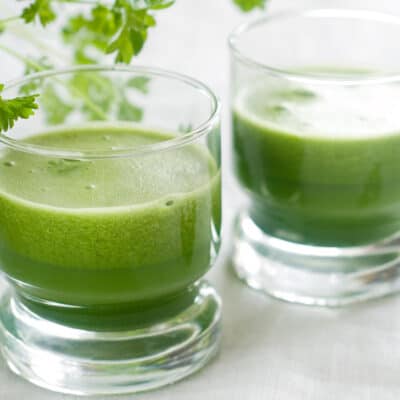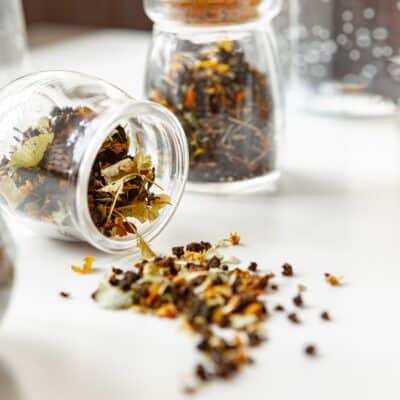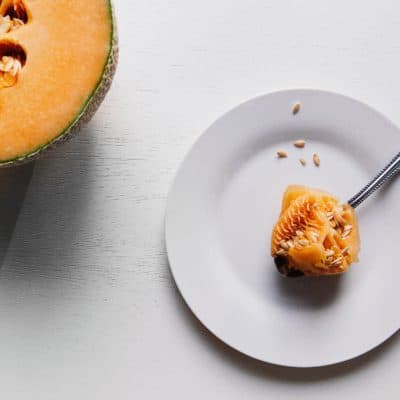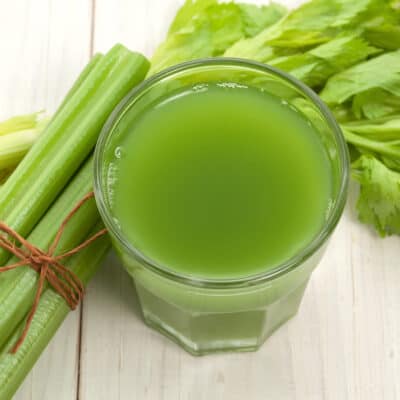In 2019, the American Heart Association released a report that stated nearly half (48%) of Americans have heart disease. In fact, according to the CDC, heart disease is the leading cause of death for Americans. However, in the last few years, cases seem to be rising dramatically as people from all over the world – especially athletes – seem to be suffering from heart conditions.
Many people have reached out to me asking this question: Amber, what is happening? What do you suggest doing to keep my heart in optimal condition?
Causes Of Heart Complications
The root causes of heart conditions have been fairly well covered in the past, and most people can admit they know the root of most cardiovascular problems: diet, exercise, and lifestyle. While these things are definitely true, the modern world has introduced new players in the game: chemicals, pharmaceuticals, and a sedentary lifestyle to name a few.
Chemical Burden
Certain chemicals such as phthalates (used to soften plastics, as well as an ingredient in many shampoos and lotions) have been found to have adverse cardiovascular effects. Phthalates can often be found in the group of mysterious chemicals that fall into the listed “fragrance” in the ingredient list. One shampoo might not put you over the edge, but if we look at our shampoo, face moisturizer, toothbrush, hair spray, plastic drinking cup, mail packaging, the “new car smell”, and even the presence of phthalates in cheeses, meats, milk, and pesticides used on fruits and vegetables – all of these things combined can certainly cause a chemical burden in the body that is greater than we realize. If our chemical exposure to – or even ingestion of – phthalates is multiple times throughout the day, and then daily throughout the year, it’s no wonder that this can be affecting our health. Check out this resource by the Environmental Working Group to see how you can decrease your exposure to phthalates.
Pharmaceuticals
Pharmaceutical use has risen exponentially, and a common side effect to prescription and over the counter medications is the risk of heart issues. Antibiotic use in women has been linked to greater risk of heart disease and stroke in women. This is the most medicated the human race has ever been, and we are not sure what the effects of that are – except, perhaps, more complications down the road that we might have to take another pill for. Pharmaceutical use has been growing steadily, but the sharp rise in fatal and damaging cardiovascular events in the last two years has caused many researchers to raise an eyebrow at the single mass-encouraged pharmaceutical in the same amount of time. The data backs up this skepticism, showing sudden rises in myocarditis and serious cardiac events in athletes alone after taking a certain inoculation. I have always been a staunch believer in informed consent and strongly encourage doing your own research into everything that goes into your body.
Blood Toxicity & Circulation Issues
Factors that contribute to the toxicity level in the bloodstream and the circulation issues I continually see in my practice:
- Chemical burden
- Pharmaceuticals
- Increase in processed foods
- Heavy emphasis on high fat diets
- Increase in sedentary lifestyle
- & other factors
If there are toxins in the blood, and the inner organs, bones, and other systems are being fed by a toxic bloodstream, the health of the entire body begins to suffer.
Circulation issues can arise not only from a sedentary lifestyle, but also from:
- Blood toxicity
- Poor hydration
- High fat intake
- Poor oxygen intake and/or absorption
- Hormone imbalance
- Plastics residue
- Poor lymphatic flow
- Blood pressure issues
- Cholesterol imbalance
- And many more.
Poor circulation in the body can lead to poor transport of hormones, of oxygen and nutrients to the cells, and of waste products from the cells to the elimination organs. Poor circulation can also lead to difficulties regulating body temperature, sodium balance, and pH level. All of these can snowball into deeper health issues.
How To Support Your Heart
Move & rest.
It is well documented that movement is great for heart health, for several reasons, so I won’t go too much into it here. Movement is especially important for those with sedentary jobs. For those who are constantly on the move or who are recovering from illness, rest is also very important. A heart that is constantly working hard can contribute to fatigue and exhaustion.
Hydrate for better blood flow.
A 2016 study found dehydration plays a role in the risk for cardiovascular disease. Poor hydration can lead to thicker blood, which is harder for your heart to pump throughout your body. My general recommendation for hydration is to drink at minimum half of your body weight in ounces (for example, 200lbs = 100oz of hydrating fluids). Coconut water is a great hydrator and nourisher on a cellular level – if it is available to you without preservatives, I highly recommend it.
See my hydration hacks for how to get the most out of your water.
Avoid these foods:
We’ve heard for years that junk and processed foods can contribute to heart disease. What I have seen in my practice, and what the research also concludes, is that your risk for cardiovascular disease increases with the consumption of:
- High fat diets
- Eggs (In fact, this study found that consuming eggs is also as bad for your heart as smoking. The National Cholesterol Education Program advises those who are at risk for cardiovascular disease not to consume eggs. See more about eggs here.)
- Red meat
- Alcohol (and another study disproved the idea that moderate drinking wards off heart disease)
- Caffeine (this study showed that drinking coffee regularly makes your heart work harder when you are stressed)
- Animal protein
- Heavy processed salt & sugar intake
It is generally my recommendation to minimize or remove these items from your diet as you are working to improve your health, and this goes for heart health as well.
If you are looking at that list and feeling discouraged – “How am I supposed to cut all of this out??” – then I recommend starting with just eating a little less of these things. Or just minimize or omit one category, and start adding in a little more fruits and vegetables. Then minimize or omit another category, and so on. Consistently doing this, you can begin to see more and more improvements in your health.
Eat more of these foods:
If you’re looking to really focus on your heart health, studies show that a whole-food plant-based diet is very beneficial. Plant-based diets have shown that they lower your risk of heart disease and lower the mortality rate from heart disease. Substituting plant proteins (such as seeds and nuts – see more suggestions here) instead of red meat has been linked to lowering the risk for cardiovascular conditions.
Be aware that not all plant-based diets are created equal: ones higher in processed sugar and processed grains still increase heart disease risk. Not all foods labeled vegan or gluten-free are healthy – so avoid these mistakes when going plant-based.
My best tips for a heart-healthy plant-based diet are:
- Lots of servings of fruits and vegetables. A study showed that eating up to ten portions of fruits and vegetables a day greatly reduces dying from heart attack, stroke, and cancer.
- Keep it low-fat. As we talked about above, fats in the bloodstream hinder the flow of circulation and create more work for the heart. This 2019 study showed that a low-fat diet prevented heart disease, slowed the progression of diabetes, and reduced death after breast cancer.
- Get rich amounts of antioxidants. A diet rich with antioxidants prevents disease and has been shown to reduce the risk for a second heart attack or stroke. Antioxidants also enrich the blood, helping to make it nourishing to every organ they circulate to.
Foods that have strong heart-protective properties:
- Onions, garlic, cayenne, strawberries, raspberries, raisins, prunes, blueberries, turmeric, cabbage, apples, parsley (see my favorite parsley recipe here)
- Carrots, butternut squash, and other foods with carotenoids have been shown to improve heart health
- Pineapple, grapefruit, and oranges have cardioprotective properties
- Limes have been associated with slowing the progression of heart disease
- Cherries are powerful heart protectors
- Cranberries have been shown to help manage blood pressure and other factors that contribute to heart disease (see all my articles & recipes on cranberries here)
Another general rule of thumb to follow is if the plant food is colored pink, reddish, or purple, it can support the blood and the heart. This means radishes, beets, strawberries, raspberries, pomegranates, red or purple grapes, tomatoes, red apples, pink dragonfruit, cranberries, cherries, currants, elderberry, wild blueberries, etc. These foods are extremely nourishing to the blood and will support the cardiovascular system. The plant compounds called anthocyanins that give these foods their color have shown many health benefits in research studies, including better cholesterol regulation, better managed blood pressure, improved blood flow, improved gut health, improved memory and cognition, and significantly improving other signs of cardiovascular disease.
Support with supplementation.
Keep in mind that you can’t out-supplement a poor diet, and it is also rare to get all the nutrients needed to help prevent or reverse a heart condition solely from diet alone. Although every body is different, this has been what I have seen over the course of about fifteen years in my practice.
When actively preventing or healing from a condition, the body needs the support of nutrients that are available in food but needed in much higher amounts. This is where high-quality supplementation can be of great benefit to the body.
As always, please know that all supplements are not created equal, and high-quality supplements are necessary when trying to actively heal the body. Cheap supplements can contain fillers, poor quality ingredients, and other artificial ingredients that can be very detrimental to the body. The brands I recommend below are ones that I have vetted and have seen their effectiveness.
Cardiovascular-supporting supplements and herbs:
*As always, please consult with a trusted health practitioner before adding or adjusting supplements in your daily regimen.
- Dandelion
- Hawthorn Berry (Syrup, capsules, tincture)
- Dr. Christopher’s Blood Formula
- Zinc sulfate – many options here (zinc deficiency contributes to heart disease)
- Pine (improves circulation and the ability to fight free radicals for those with cardiovascular disease)
- These capsules/tincture are a great blend for the heart (use code NATURE15 for discount at checkout)
- Spirulina
- Pycnogenol
Improve your emotional and stress management.
It’s easy to understand how stress impacts your heart, but did you know that your emotions do as well? Studies show that depression negatively impacts heart and stroke patients, making it harder for them to recover. On the flip side, studies are also showing that positive emotions (especially during early to middle adulthood) positively impact cardiovascular health, even for several decades. This 2020 study even showed that reframing your thoughts in tough situations leads to better cardiovascular, neuroendocrine, and psychological health. Deep breathing has shown to help regulate pulmonary function
Need some ideas to help relieve some stress or improve your mood? Here’s some ideas to help.
- 5 Simple, Natural Ways To Relieve Your Stress
- Can Drinking Water Help Relieve Stress? 3 Things You Need To Know
- 5 Foods To Help Manage Your Stress (The Healthy Way)
- The Scientific Secret To Permanent Stress Reduction
- How To Get More Sunshine in Winter For Better Health, Better Mood, & Better Immunity
- 5 Reasons You Should Meditate During Uncertain Times
- The Secret Ingredient To Improving Your Mood
- Does Being Grateful Actually Make Your Immune System Stronger?
Get outside and get grounded.
Want to feel grounded? Get on the actual ground – as in, the earth. Grounding (or “earthing”) is showing off all of its benefits in research lately as scientists give this old method of healing more and more attention. Studies show grounding helps improve heart rate variability and thins the viscosity of the blood – not to mention reducing pain and stress. (If you are on blood thinner medication, check with your doctor and see this article before embarking on high amounts of regular grounding.)
There are a number of grounding products available to help you get grounded from the inside of your house. However, if you’re able to get outside and put your bare feet on the ground regularly, that is best. Being outside in nature has been shown to improve a number of health issues, including reducing the risk for cardiovascular disease and high blood pressure. The sun also has been linked to benefitting cardiovascular health independent of Vitamin D. Remember how being less stressed helps your heart? Grounding is a great way to achieve this as it activates the parasympathetic nervous system, making the body relaxed.
Red Light Therapy can help.
Red light therapy uses low-level wavelengths of light for therapeutic support to the body. It is emerging in research with benefits such as reducing inflammation after heart failure, decreasing cardiac cellular damage and speeding the healing of cardiac tissues, supporting the formation of blood vessels, and improving blood flow to the heart.
You can get more red light by going out during the red light-rich parts of the day like sunrise and sunset hours. However, if you’re wanting to use red light therapy for a specific ailment, I would suggest using a red light lamp. There are many options available here, and if you wish you can use the code RESTORE for a discount.
Massage these oils over the heart area.
Certain essential oils can help support the body in preventing and improving heart conditions.
If you’re not sure how to use essential oils, here is a good resource to start with.
If I were using oils to support the cardiovascular system, I would use 1-2 drops of 1-2 of the below essential oils, combined with a carrier oil (enough to cover the area) and massage into the heart, chest area, and the liver area (lower right rib cage).
Essential oils to support the cardiovascular system:
- Black pepper: gives energy to the heart and helps store sunshine
- Hyssop: supports even blood pressure (if pregnant, I would recommend not using this oil)
- Lemon verbena: helps normalize heartbeat
- Lemongrass: strengthens the wall of the veins
- Rosemary: stimulates entire circulation system
- Ylang-ylang: good for racing heart
- Angelic root: supports blood pressure management and strengthens the heart
Carrier oils to support the cardiovascular system:
If you wish, you can use my code amberbodilyhealth for a discount at checkout.
You only have one heart.
Your heart is not like a kidney – you don’t have a spare, and the road to a heart transplant is not a pleasant one. Taking care of your heart and cardiovascular system has far-reaching benefits for your health both now and for years to come. There are many very simple changes you can make that will make big ripples toward improving your health!
Ignite the Healer within,
Amber Bodily
P.S. Want to make the transition to a plant-based diet? Check out my online course Go Vegan For 30 Days for recipes, meal plans, and my best tips and information.





